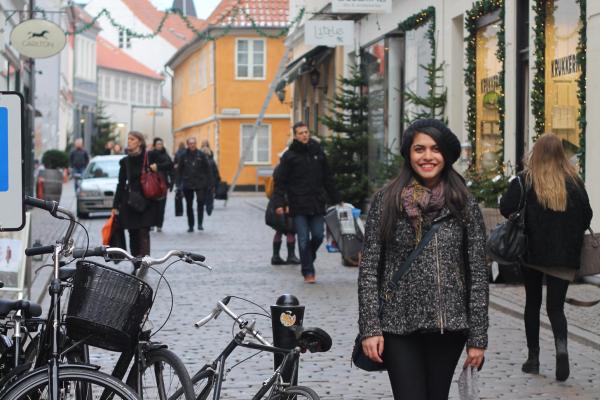When I started practicing travel medicine 25 years ago, volunteering abroad was for the young and healthy, as opposed to the rich and famous. Well, times have changed. Those who choose to "travel with purpose" range from their mid-teens to their mid-eighties. And travellers with every imaginable medical condition, from cardiac pacemakers to prosthetic legs, visit me about their upcoming trip to Africa or wherever. Medical advances, internet access and an ever-increasing desire to experience the world are just a few of the things that have made this possible.
However, if you have a pre-existing medical condition, it might be worth checking in with your family doctor or a travel medicine specialist prior to booking your flight. What you think sounds like a great idea might need a sober second thought. For example, if you suffer with asthma and are dependent upon puffers, then a placement in one of the world's most polluted cities, such as Manila or Beijing, might not be for you.
Specific medical conditions
The advent of a variety of types of insulin, glucometers and even insulin pumps has made the management of diabetic travellers much easier. Remember that insulin should be stored at room temperature, so living in the middle of the Gobi Desert where the air conditioning is unreliable might present a challenge.
Become an expert on your medical condition regardless of what it is. Be aware of what complications might arise. Know how to deal with them.
Depression and anxiety are prevalent in our society, and no less so in volunteers. While many people envision a volunteer stint as a chance to get away from it all, or believe that it may even be therapeutic, such is not always the case. It might be worthwhile to find out if some sort of mental health support will be available at your destination. As well, learn some methods to deal with stress before you actually need them.
Medication and yoga may prove invaluable. If patients are taking antidepressant medications, I often suggest that they continue these during their time abroad. Remember that the antimalarial mefloquine should not be taken by people with a history of psychiatric problems.
Inflammatory bowel disease (Crohn's Disease or ulcerative colitis) is another common condition amongst young volunteers-to-be. A wicked bout of Delhi-Belly would be an unwelcome visitor in such a traveller. Travelling for several months to rural India or other places where gastrointestinal infections are common, might be a bit risky.
How about HIV/AIDS? Certain infections such as bacterial diarrhea and some parasites may be more serious in infected patients. Know your CD 4 count before you travel. Be prepared for any complications. Carry adequate supplies of your ARVs if you are taking them, and check to make sure that a negative HIV test is not a condition of entry to the country you plan to visit.
Epilepsy should be an easily controllable condition as long as you take your medications, and keep them down. A small case of theft or vomiting and diarrhea might interfere with those plans. Remember that a grand mal seizure might be interpreted as "being possessed by the devil" in some cultures.
Arthritis, whether it be osteoarthritis from wear and tear and age, or other inflammatory conditions such as rheumatoid arthritis, will certainly put a damper on your experience if you have to walk a mile uphill to get to your school in that quaint Nepalese village. Again, make sure your placement makes sense.
Preparing to go abroad
I have only touched on a few specific medical issues, as to cover them all would take up most of this issue. Here are a few generalizations that might help if you do have a concerning medical condition.
• Become an expert on your medical condition regardless of what it is. Be aware of what complications might arise. Know how to deal with them.
• Take more than adequate quantities of medications and supplies that you may need. Some might get lost by the airline. Some by you. And they might not be available locally.
• Carry some evidence, such as a Medic Alert bracelet, that you have a chronic medical condition. It might help the local doctor or your fellow traveller understand what your problem is.
• Carry medical insurance—make that very good medical insurance. Not all plans cover pre-existing medical problems. Be sure that you are willing to tolerate that risk.
• Take along a summary of your medical history, such as recent ECGs, blood tests or letters from your doctor.
• Find out about the available medical facilities at you destination. In some places they are great. In others, in my experience, they are a bit dangerous.
Finally, have some sort of a lifeline to medical care back home, whether it is your family doctor, your travel clinic or your specialist. Sometimes just a short e-mail or cheap phone call is all you need to set things straight. Volunteering abroad is a great thing to do—returning home healthy is even better.
Mark Wise is a family doctor in Toronto, specializing in travel and tropical medicine. He is the director of The Travel Clinic and acts as medical advisor to numerous NGOs and is on the board of Canadian Feed the Children. He has travelled to most of the places where you might consider volunteering.
Add this article to your reading list




